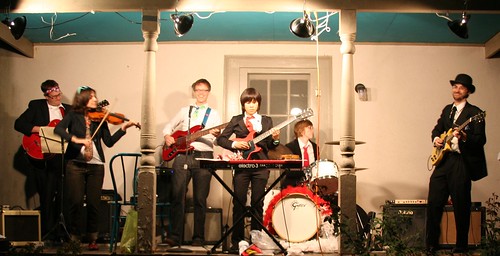I’m an ethnographer of contemporary rock music-cultures. And I love the experimental spirits among digital humanists. At THATcampVA, I would like to re-imagine the possibility of a digital ethnography. My main question is: how can digital technology facilitate field research and ethnographic ‘writing’?
Rather than texts, ethnographers’ objects of intellectual interest are social interactions and cultural practices. Anthropologists and ethnomusicologists, whose primary mode of research has been participant-observation, have conventionally privileged the traditional, non-mediated, live, and experiential over the fixed, mediated, and textual, in their field participation. In the last decade or so, they have started to see the value in studying non-physical and mediated, and oftentimes software environments, thereby extending the notion of the ‘field.’ How may digital tools facilitate the processes of observing and participating in these newly defined “fields” that are now digitally mediated? Email and engagement with social media are becoming a normative mode of interaction for many individuals in many societies. Many ethnographers use digital communication methods to find, reach, and contact their informants. In my dissertation (on the Asian American experiences of indie rock music), I spent countless hours locating musicians online, using either Google or social network sites such as Myspace, Facebook, Twitter, and Last.FM. How can we as ethnographers, besides hanging out in a chat room or on a discussion forum, take a snapshot of these digital social media interactions? What are the social, political, and institutional implications of such digital contacts, versus conventional methods of flying to a distant location and meeting someone face-to-face? Digitally mediated communication allows the user to reach far. It is a technology of horizontal expansion. What does “in-depth” fieldwork look like in the milieu where communication is often digitally mediated?
Ethnographic writing involves a set of processes distinct but related to field research. What technological extensions may further the tasks of documenting, analyzing, articulating, and representing field observations and interactions? In my dissertation, I leveraged a geo-spatial visualization tool to map the Myspace “friend” networks of the musicians in my dissertation. These visualizations enabled me see patterns of social linkage that I hadn’t anticipated. They also allowed me to generate more questions about ethnic belonging and transnational communities. So, what other digital methods could extend our capacities as ethnographic documentarians and analysts? What are the intellectual advantages (and disadvantages) of digitizing an otherwise live and non-mediated experience or interaction?
Digital humanists have developed an emerging set of sophisticated theories around the issues of texualization and archiving. To relate to these inquiries, I find that it may be useful to consider the act of ethnographic ‘writing’ as a form of textualization. So in the instance of articulating field data, we may be creating an archive of texts that interpret cultural practices. If that’s the case, my digital maps make up a cultural archive that documents and interprets the songs and performances of the musicians in my project. More flexible than conventional archive (a published journal article or book), a digital archive can be closer to life because it is akin to the performative practice of building a repertory from which agents draw scripts, meanings, and inspirations. I’m interested to hear what everyone thinks about the experimental possibility and pragmatic processes of the digital mapping of social and cultural practices. I’m also interested in exploring the notion of a digital archiving or mapping as a performative ethnographic “writing” process.


